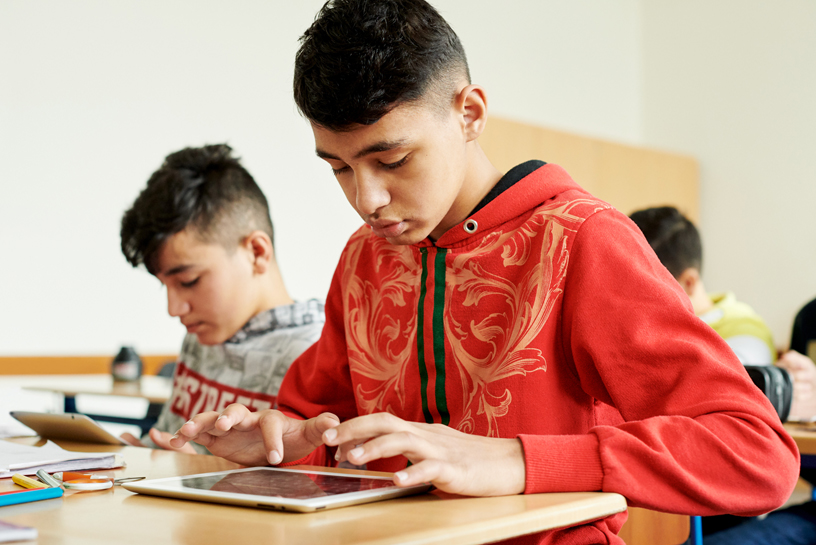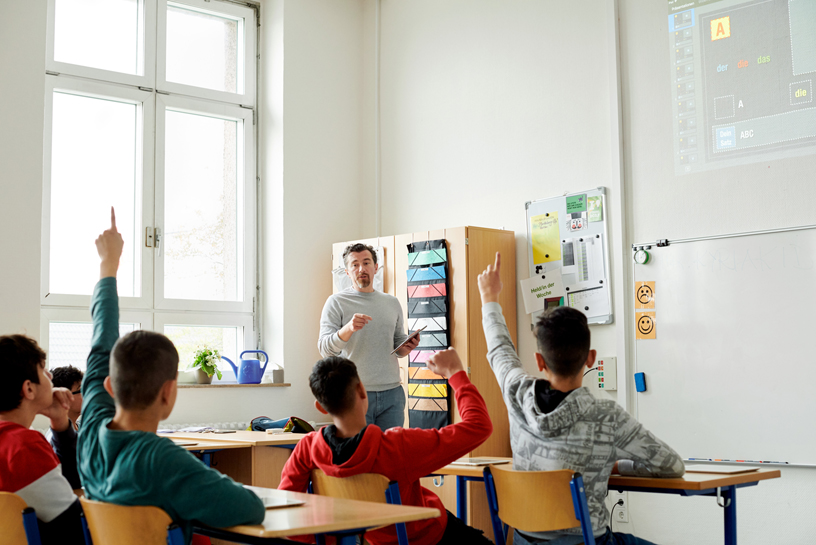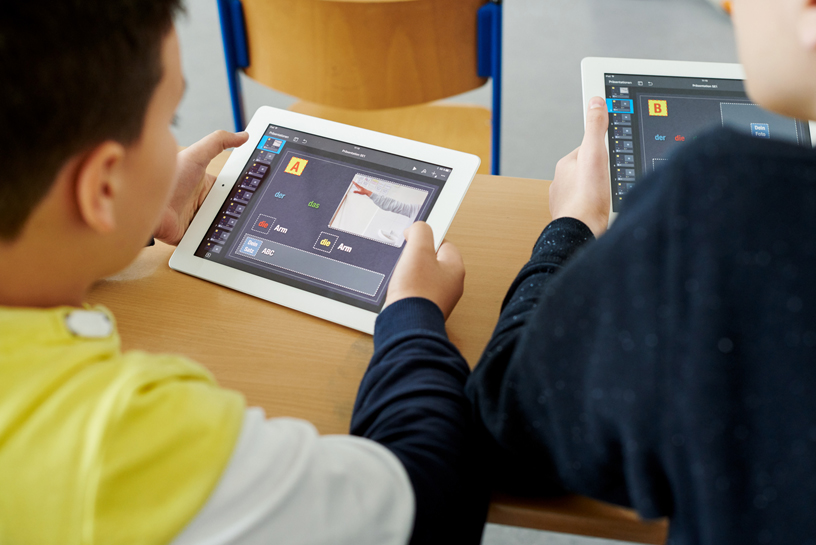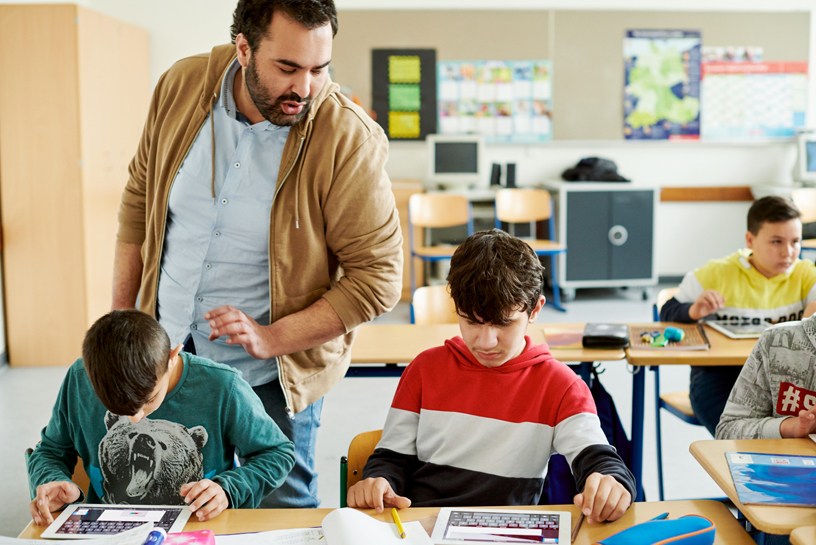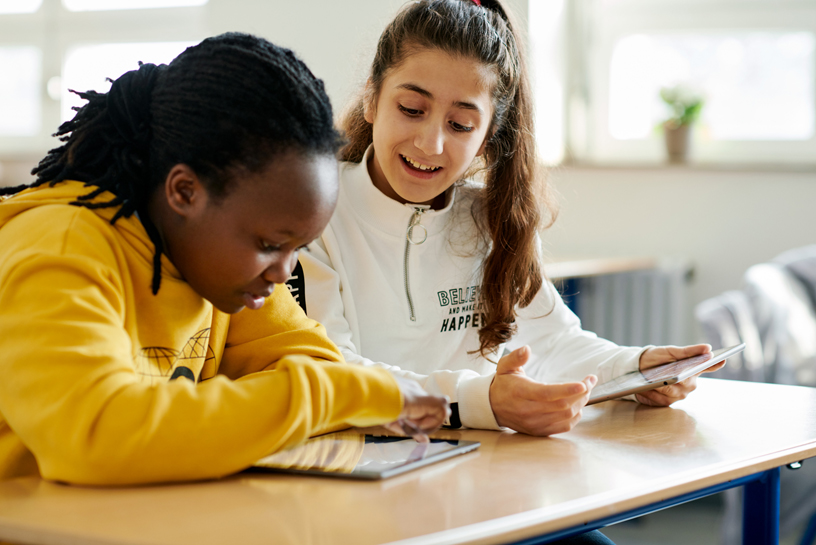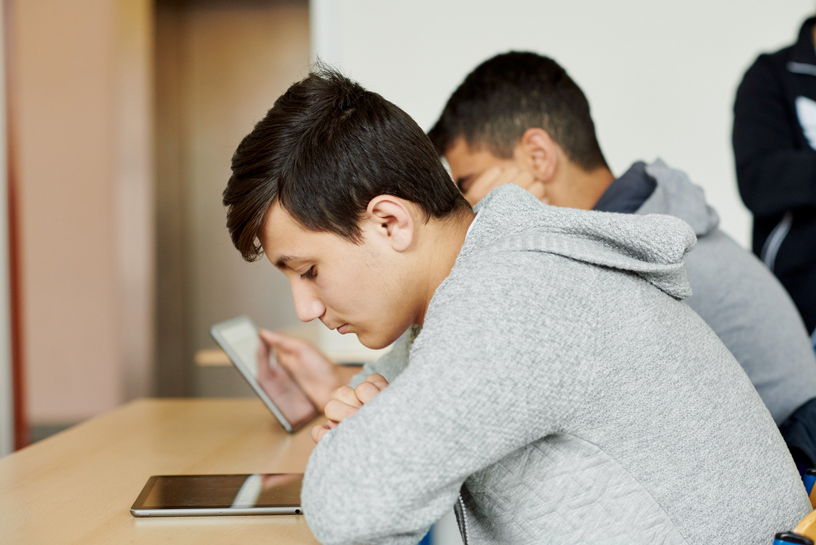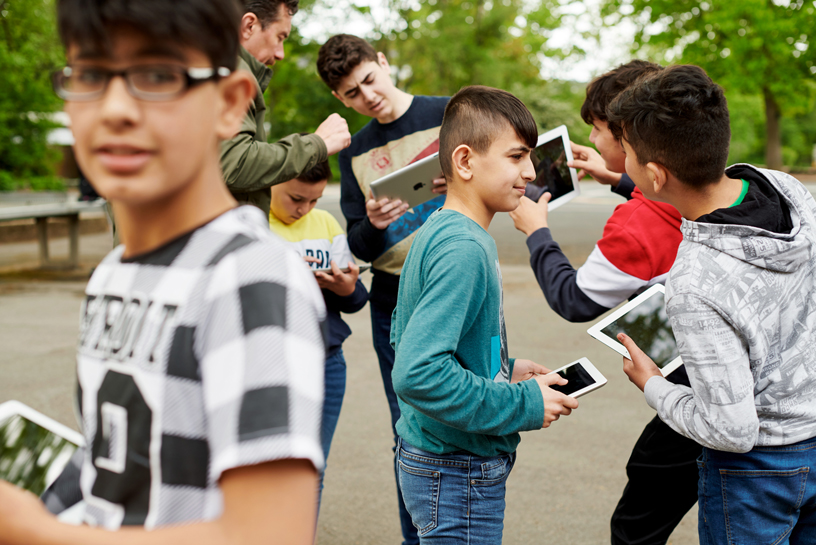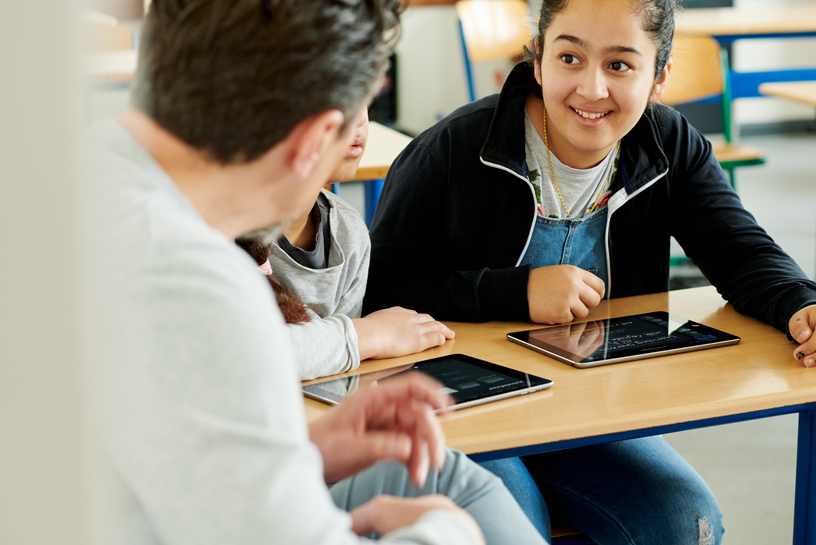FEATURE
12 June 2019
When words aren’t enough, teachers find a common language with iPad
This feature is part of a series of stories spotlighting teachers and students using innovative technology in the classroom.
A single voice calls out “Sabah-ul-khair” and an eager chorus returns the greeting.
At the beginning of each language class at Wilhelm Ferdinand Schussler Day School in Dusseldorf, Germany, teacher Nick Kyriakidis asks a different student to say “good morning” in his or her native language. On this morning, as is the case most often now, that language is Arabic.
The diversity of this classroom is a reflection of the changing face of Germany and Europe. Over the last five years, the region has seen the largest influx of immigrants and refugees since World War II. Many have fled violence and war in the Middle East, which presents a unique set of challenges to educators, who are not only contending with different languages, but entirely different alphabets. In some cases, new arrivals have never stepped foot in a classroom before.
For Kyriakidis, 47, and his colleague Sinaan El Haq Hadjeri, 31, who alternate teaching the class on different days, one of the most powerful tools they have to bridge that language divide is iPad.
“Kids withdraw when they’re afraid of [making] mistakes,” says Kyriakidis. “If we try to reduce this fear, it’s much easier for them to work with us because they don’t have anything to lose.”
“With iPad … it’s different than when they write something [on paper] and I come in with my red pen and say ‘that’s wrong,’” says Hadjeri. “[With iPad] they learn for themselves.”
Of the school’s approximately 325 students who come from 39 different countries, about 20 percent are “Deutsch als Zweitsprache” (DAZ), which translates to “German as a Second Language.” Of the seven students in class today, four are from Syria, and the other three are from Afghanistan, Iraq and Kenya.
Since the school began the 1:1 iPad program, where every student has access to their own iPad, 100 percent of participants have graduated, an increase of more than 20 percent. And nowhere is the difference more transformative than with the DAZ students.
That includes Medina Ibrahim, 13, and her brother Mohammed, 16, who came to Germany with their parents and two younger siblings. Their journey from Aleppo, Syria, took them through Türkiye before the family settled in Dusseldorf.
Medina says that when they arrived they were very lonely because they couldn’t speak a word of German and had trouble making friends.
Over the course of the last year, Medina, her brother and the other students in this class have worked with their iPads daily, including using a number of lessons that Kyriakidis created with Keynote. Today, Medina assembles a sentence into the correct word order, and uses Voice Record to say it in German into her iPad. It gives her and the other students the opportunity to sound out foreign words by themselves, without fear of embarrassment, and to work at their own pace.
Schools all across Europe are finding new ways to use Apple technology to help teachers and students connect and communicate.
“I want to be someone who loved them, taught them and inspired them. Someone who helped them arrive.”
At College Daniel Argote in Pau, France, students are sent home with a video lesson recorded by their teacher on their iPad, and the next day work through their “homework” in class. This way, students whose parents aren’t fluent in French are able to extend their learning both inside and outside the classroom.
At Stenkulaskolan School in Malmo, Sweden, where 98 percent of students speak Swedish as a second language, teachers have seen an 80 percent jump in math grades since they started sending home similar instructional videos, recorded by a teacher in Swedish.
And at St. Cyres School in Penarth, Wales, the 2018 senior class of English as an Additional Language students working with iPad increased their grades by an average of 3.8 points during the year — outperforming their peers who speak English or Welsh as their native language for the third year in a row.
In May, Apple announced that Malala Fund was joining its partnership with vocational school Simplon to teach the coding language of Swift to underserved groups in France, with a new focus on refugee and displaced young women. Apple’s Everyone Can Code curriculum will help them gain the practical skills needed for a career in software development. Apple will provide funding for teacher recruitment and training, as well as devices including iPad.
Kyriakidis and Hadjeri say they wish they had access to today’s technology and support when they were young. As children, both men came to Germany unable to speak the language, and know what it’s like to feel isolated in a new place. It’s also one of the reasons why the students are fiercely connected to both teachers — a feeling that goes both ways.
“They’re like my children,” says Hadjeri, who on numerous occasions arrived at school to find a student absent, only to learn the family had been deported. “I want to be someone who loved them, taught them and inspired them. Someone who helped them arrive — that’s what I always wanted but never had. Someone who tells you … don’t be discouraged, you’ll get there.”
Over the course of the last year, Medina and Mohammed have progressed so much that this will be their last semester of DAZ classes with Kyriakidis and Hadjeri. Medina recently gave a presentation on Napoleon to her history class, created in Keynote and delivered completely in German. She hopes to one day be an engineer, and her brother, a pharmacist.
Through a translator, Medina says that she was happy back in Syria, but now here in Germany, she isn’t just happy, she is safe.
This feature continues a series spotlighting teachers and students using innovative technology in the classroom.
Images of Wilhelm Ferdinand Schussler Day School
